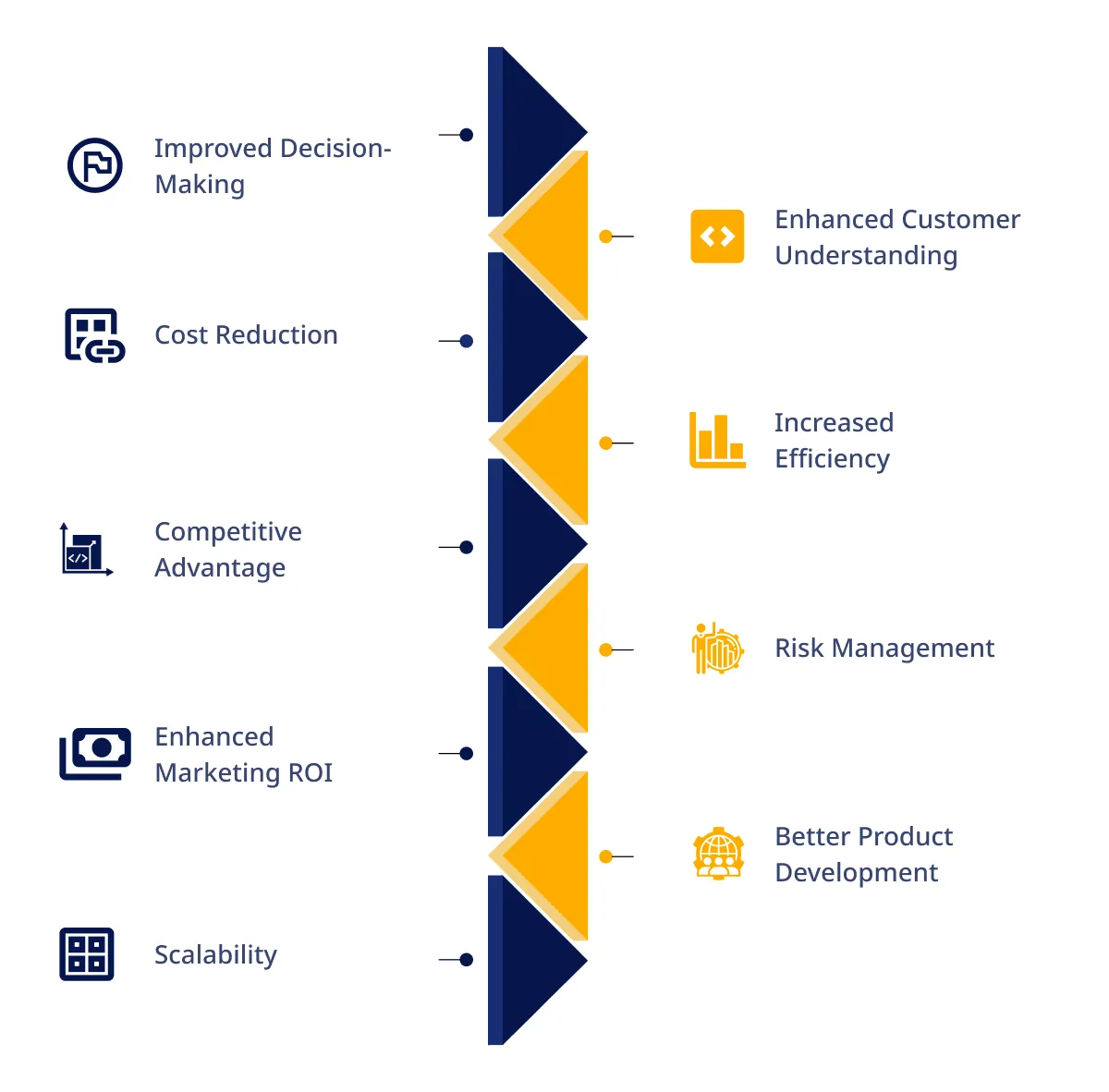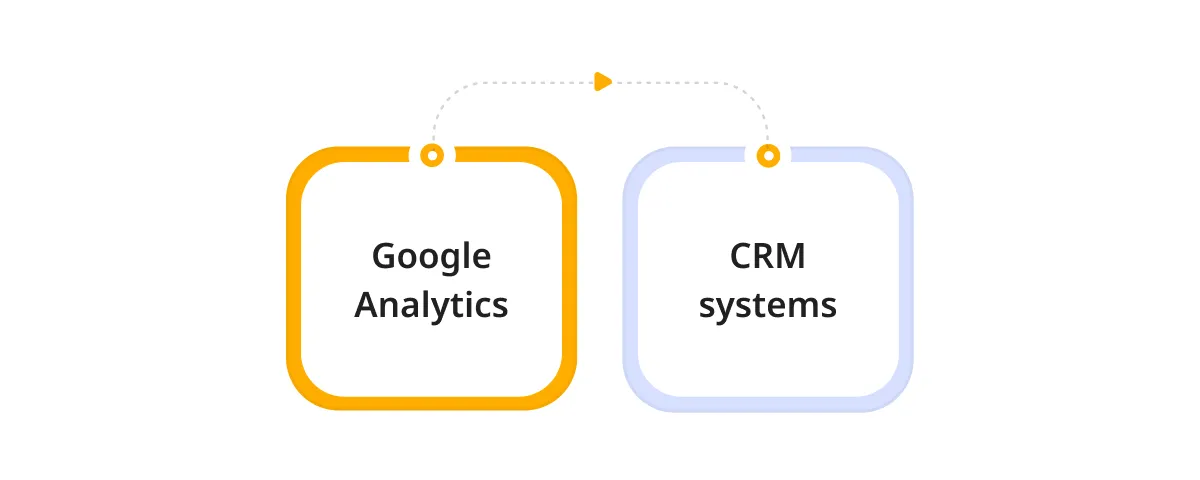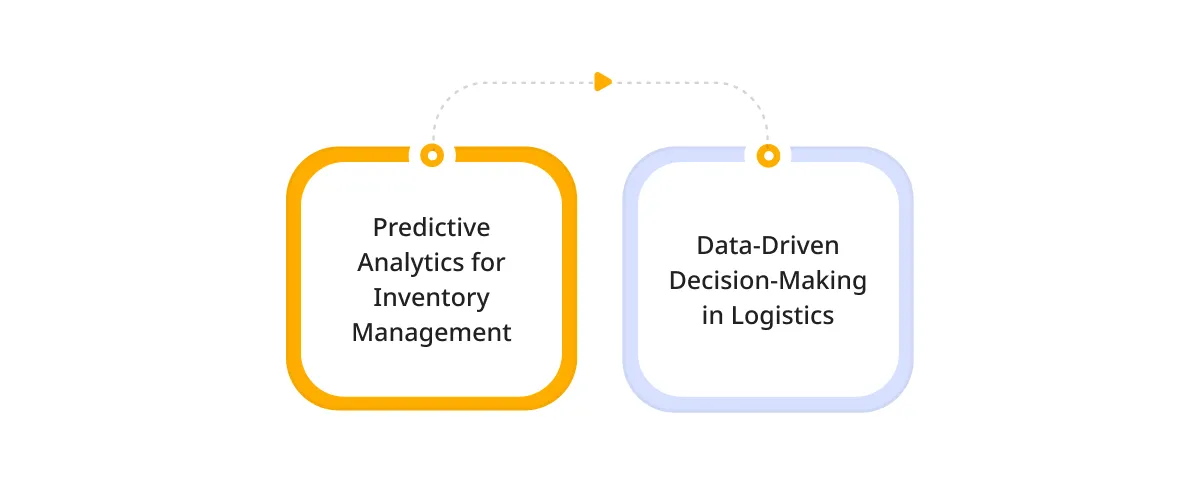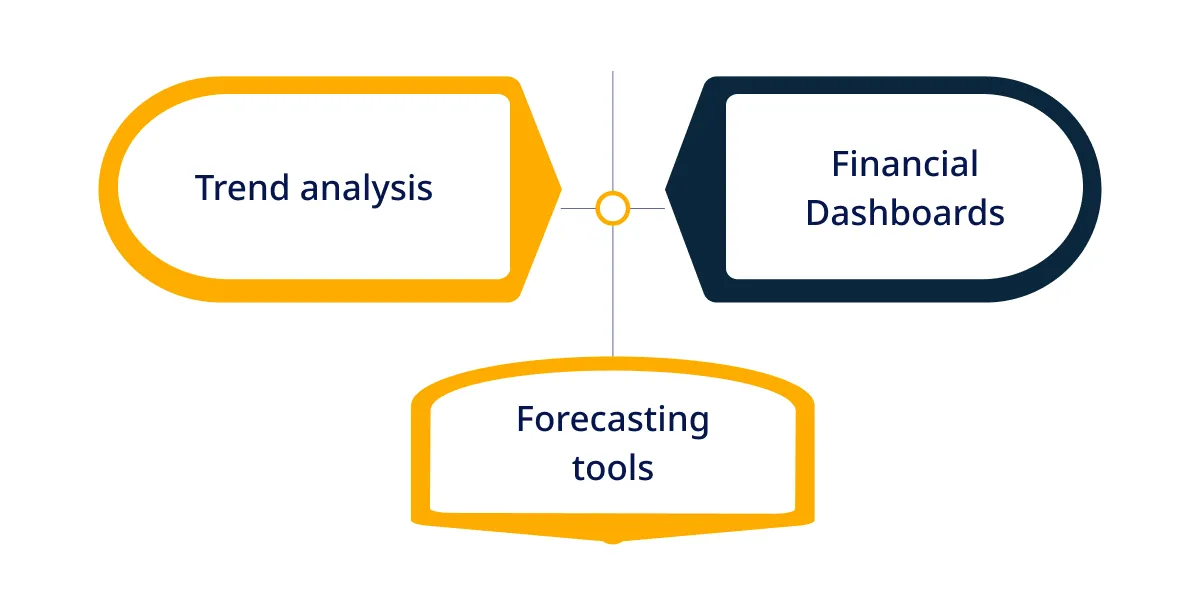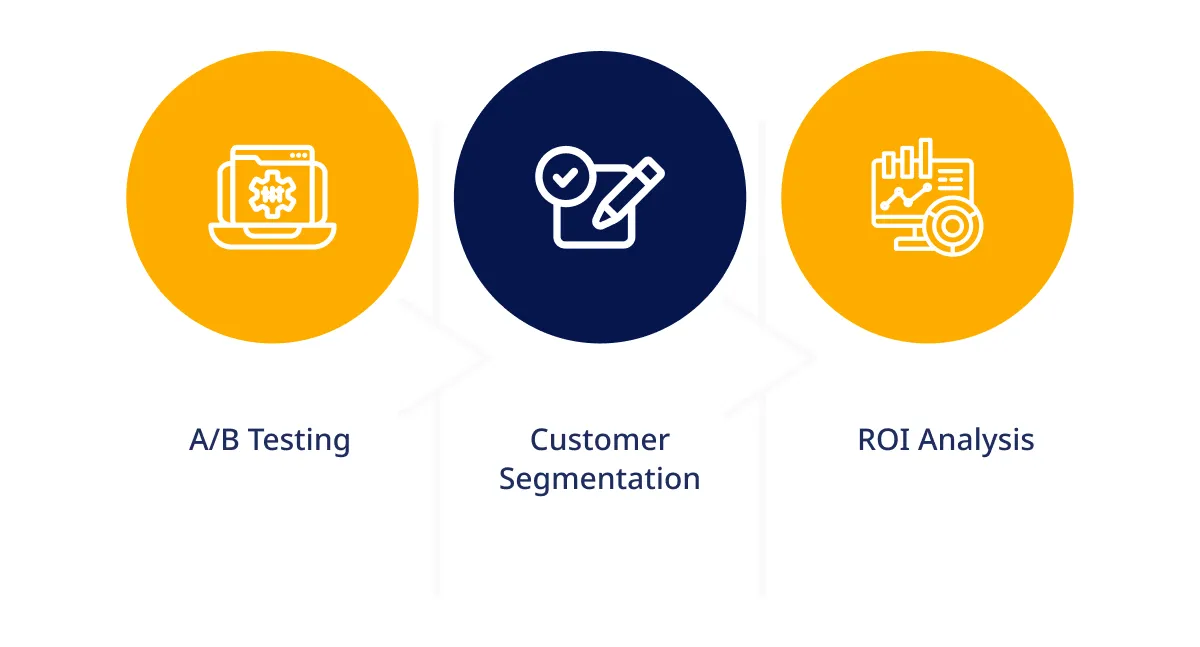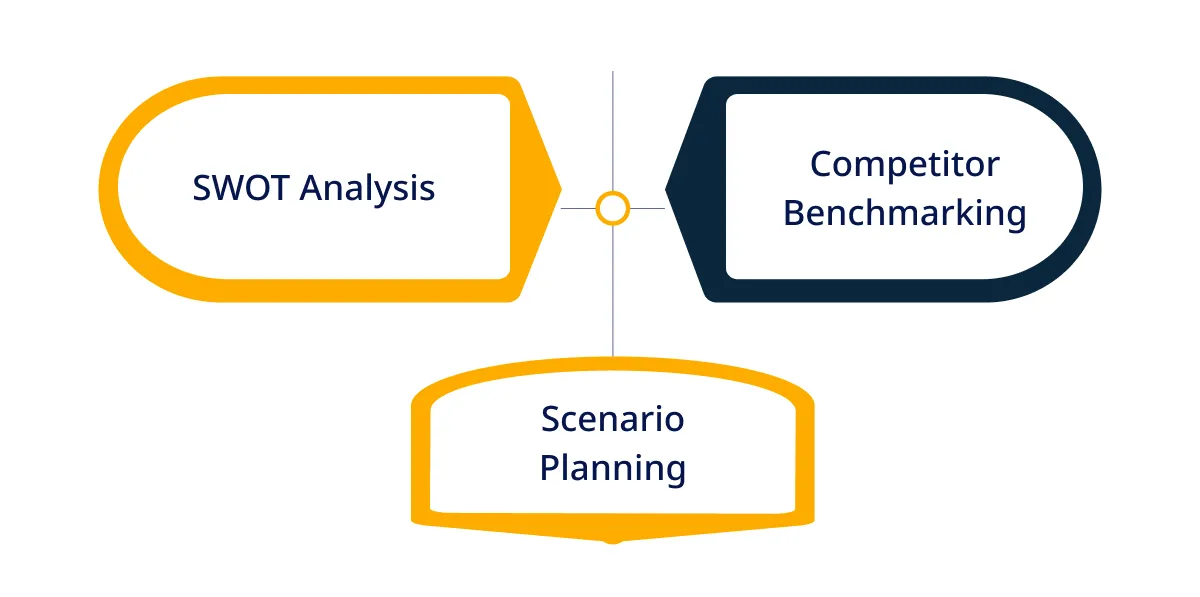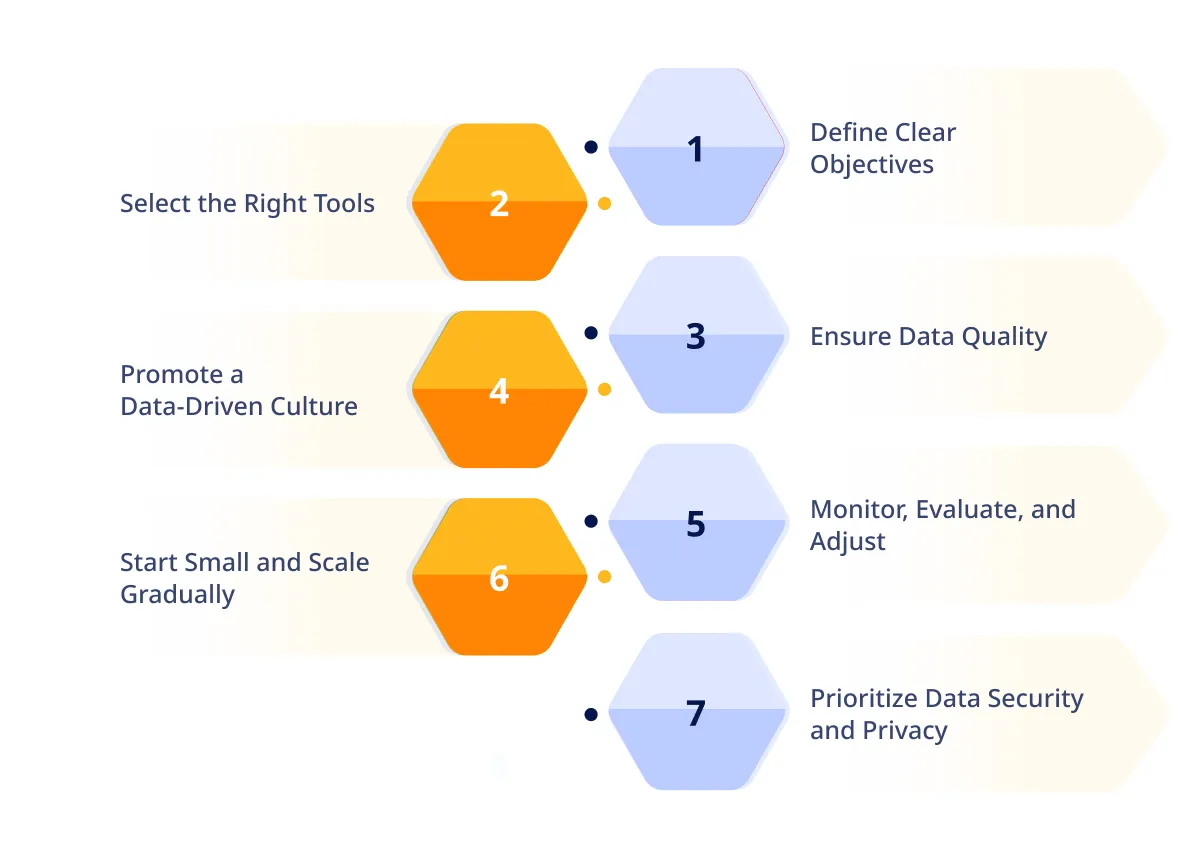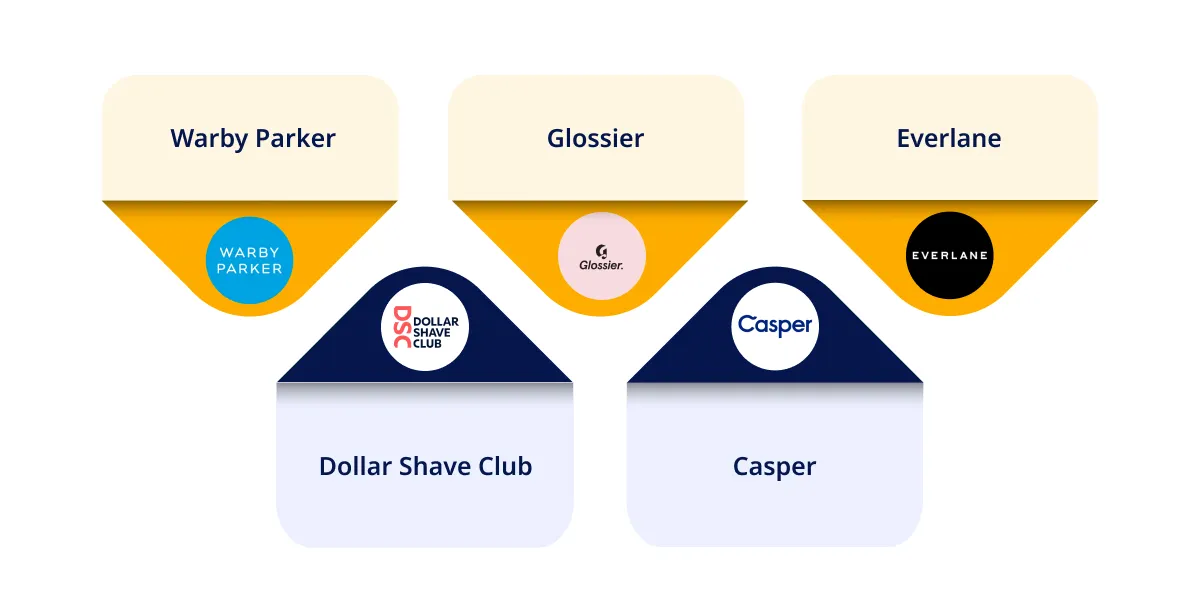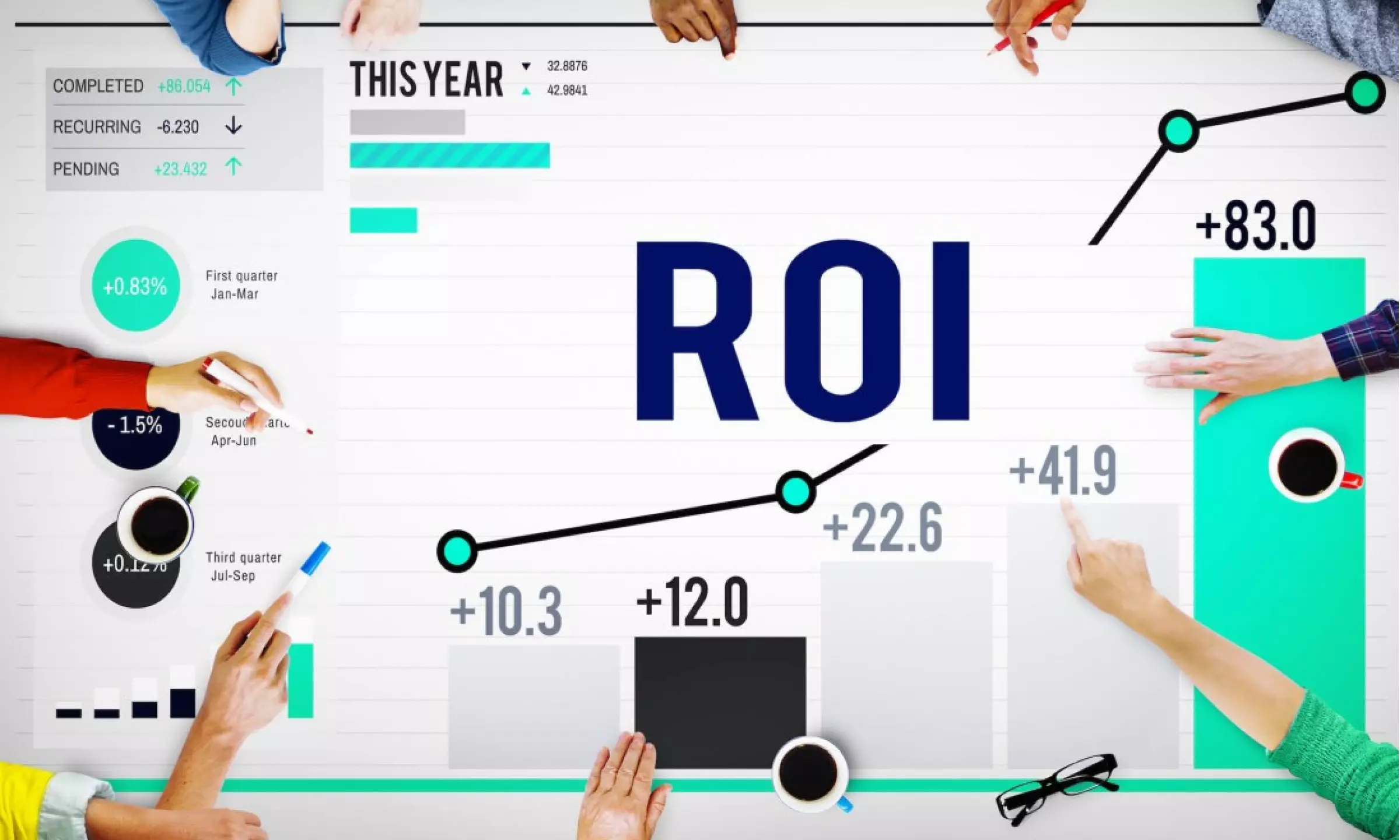According to inc survey, about 73% of data goes unused for analytics in small and medium companies. With the right analytical tools and strategies, SMEs can unlock valuable insights, drive growth, and make informed decisions that propel their business forward.
Also, data analytics is a strategic asset that can transform how businesses operate and compete. Many small businesses face the challenge of making informed decisions quickly and efficiently.
This blog post provides five practical ways for SMEs to use analytics for small businesses to optimize their operations, achieve sustainable success, and enhance customer experiences. Read it to discover how to turn data into your most powerful information.
Before discussing the top 5 ways companies leverage analytics, we will also examine the key benefits of analytics for small businesses.
Partner with ValueCoders to harness analytics that help you optimize operations and improve decision-making.
Common Benefits of Using Data Analytics For SMEs
According to a Data Ideology report, data-driven organizations are 23 times more likely to acquire customers, six times more likely to retain customers, and 19 times more likely to be profitable.
Hence, data analytics provides many benefits for SMEs, empowering them to make more informed decisions and stay competitive. Look at the key benefits of data engineering services below:
1. Improved Decision-Making: Data analytics allows you to make data-driven decisions for small businesses by providing insights into customer behavior, market trends and operational efficiency. This leads to more accurate and strategic business choices.
2. Enhanced Customer Understanding: By analyzing customer data, SMEs can better understand their needs, preferences, and buying patterns. This allows for personalized marketing strategies and improved customer satisfaction.
3. Cost Reduction: Manufacturing Data Analytics for small businesses helps identify inefficiencies and areas where costs can be reduced. SMEs can significantly cut expenses by optimizing supply chains, managing inventory more effectively, and improving resource allocation.
4. Increased Efficiency: Analyzing operational data allows SMEs to use analytics in the deployment process, automate routine tasks, and eliminate bottlenecks. This boosts overall productivity and ensures smoother business operations.
5. Competitive Advantage: SMEs that leverage data analytics gain a competitive edge by staying ahead of market trends and responding swiftly to changes. This proactive approach helps them outperform competitors who rely on intuition rather than data-driven insights.
6. Risk Management: Financial data analytics for small businesses can predict potential risks and identify emerging threats. SMEs can use this information to mitigate risks, plan for contingencies, and ensure business continuity.
7. Enhanced Marketing ROI: SMEs can allocate their budgets more efficiently and focus on data analytics techniques for SMEs by analyzing the effectiveness of marketing campaigns that yield the highest return on investment.
8. Better Product Development: Business analytics for SMEs provides insights into customer feedback and market demands. It helps enterprises innovate and build products that more effectively meet customer needs.
9. Scalability: Data analytics can help SMEs scale their operations more efficiently by identifying growth opportunities and using data to make business decisions about expansion.
5 Ways SMEs Use Data Analytics For Data-driven Decisions
Have a look at the following ways companies use data-driven decision-making.
1. Understanding Customer Behaviour
Businesses usually gather valuable data on how consumers interact with their products and services using small business analytics tools like Google Analytics, CRM systems, and social media analytics.
Google Analytics for small businesses provides insights into website traffic, showing which pages attract the most visitors and which products generate the most interest.
CRM systems compile comprehensive customer profiles, tracking interactions, purchase history, and feedback. Social media analytics offers a glimpse into customer sentiment and engagement across various platforms.
Benefits of understanding customer behavior through analytics are substantial.
- With precise data, SMEs can improve customer targeting and ensure that marketing efforts reach the right audience at the right time.
- Personalized marketing becomes achievable as businesses can tailor their marketing messages and product offers based on individual preferences and behaviors.
- Furthermore, these insights can inform product development, helping businesses create offerings that truly meet customers’ needs and desires.
ValueCoders’ tailored analytics solutions help SMEs boost efficiency and profitability through actionable insights.
2. Optimizing Operations and Efficiency
Data analytics is crucial in helping SMEs optimize their operations and enhance efficiency. By analyzing data across various business functions, SMEs can identify inefficiencies and implement strategies to streamline processes.
In supply chain management, data analytics can pinpoint bottlenecks and areas of excess inventory, allowing businesses to adjust their ordering and stocking practices.
For production processes, analytics can identify patterns in machine performance and maintenance needs, enabling proactive maintenance and reducing downtime.
Predictive Analytics for Inventory Management: Businesses can better manage their inventory by forecasting demand based on historical data and market trends. This further ensures they have the right products in stock at the right time.
It helps companies maintain optimal inventory levels and lessen the effective costs associated with stockouts/overstocking.
Data-Driven Decision-Making in Logistics: Analyzing data from various sources, such as GPS tracking and customer orders, can help optimize delivery routes, reduce transportation costs, and improve delivery times, enhancing overall customer satisfaction.
Data-driven decision-making for SMEs can lead to more efficient routing and scheduling. This minimizes delivery times and reduces fuel costs using AI in logistics.
Benefits
- Streamlining business processes with data analytics can lead to significant cost savings, as companies can reduce waste and avoid unnecessary expenses.
- Improved resource allocation ensures that staff, equipment, and materials are used efficiently, boosting productivity.
- Enhanced operational efficiency strengthens the company’s bottom line and improves its ability to compete in a dynamic market environment.
Also read: 10 Ways Logistics Companies Can Benefit From AI/ML
3. Enhancing Financial Decision-Making
Making informed financial decisions is crucial for SMEs to maintain stability and foster growth. By using data-driven strategies, SMEs can better understand their financial health and make more informed decisions.
Data analytics for small businesses provides valuable insights into a company’s financial status or performance. It also helps business owners and managers understand trends, manage cash flow effectively, and create accurate budgets.
Financial Dashboards are powerful SME analytics tools that aggregate data from various financial sources. They comprehensively view key metrics such as revenue, expenses, and profit margins.
These dashboards enable SMEs to monitor financial performance in real-time, quickly identifying any discrepancies or areas of concern.
Trend analysis is another valuable application of data analytics. It involves examining historical financial data to identify patterns and trends. This analysis helps businesses forecast future financial performance, allowing for better planning and preparation.
For example, understanding seasonal sales patterns can help optimize inventory levels and align marketing efforts.
Forecasting tools enhance financial decision-making by providing predictive insights based on past data. These tools can simulate different scenarios, helping SMEs anticipate potential financial challenges and opportunities.
This capability is particularly useful for budgeting. So, it allows businesses to allocate resources more effectively and plan for future investments.
Benefits
- Implementing data-driven financial strategies leads to more accurate financial planning, enabling SMEs to manage risks effectively and make informed investment decisions.
- This approach enhances the company’s ability to navigate economic fluctuations, allocate resources efficiently, and achieve long-term financial stability.
- Ultimately, it supports strategic growth by ensuring that financial resources are used optimally and that the business is well-prepared for future challenges and opportunities.
ValueCoders enables SMEs to stay ahead of the competition by using analytics to predict market trends and make smarter decisions.
4. Improving Marketing Strategies
Analytics for small businesses helps them optimize their marketing efforts by providing insights into market trends, consumer behavior, and the effectiveness of marketing campaigns.
It enables businesses to fine-tune their marketing strategies. This further ensures marketing efforts align with customer needs and preferences.
A/B Testing: Businesses can compare different versions of marketing materials, such as emails or landing pages, to determine which performs better and resonates more with their audience.
Customer Segmentation: Analytics allows for the segmentation of customers based on demographics, purchasing behavior, and other factors, enabling targeted marketing efforts that cater to specific groups.
ROI Analysis: By tracking the performance of marketing campaigns, businesses can calculate the return on investment (ROI) and identify which strategies yield the best results.
Benefits
- Businesses can improve the likelihood of converting prospects into customers by targeting the right audience with the right message.
- Optimizing marketing campaigns through data analysis ensures that marketing budgets are spent more efficiently, maximizing the impact of each dollar spent.
- Tailoring marketing efforts to meet different customer segments’ specific needs and preferences leads to stronger engagement and loyalty, ultimately driving sales and brand loyalty.
5. Supporting Strategic Planning and Growth
Data analytics for small businesses provides them with critical insights that support strategic decision-making, helping to guide long-term planning and growth initiatives.
By analyzing market trends, customer preferences, and competitive dynamics, businesses can make informed decisions on where to invest resources, how to expand, and which products or Data Analytics consulting services to use.
SWOT Analysis: Analytics helps businesses conduct comprehensive SWOT (Strengths, Weaknesses, Opportunities, Threats) analyses, providing a clear picture of internal and external factors that can impact strategic planning.
Competitor Benchmarking: By comparing performance metrics with competitors, SMEs can identify gaps in the market, areas for improvement, and opportunities for differentiation.
Scenario Planning: Analytics allows businesses to model various scenarios and their potential impacts, helping anticipate market changes and prepare for different possibilities.
Benefits
- Data-driven insights enable SMEs to make well-founded strategic decisions, ensuring that plans are aligned with market realities and business goals.
- By properly understanding the potential issues associated with different strategies, businesses can take proactive measures to mitigate them, enhancing overall resilience.
- Leveraging analytics for strategic planning helps businesses identify and capitalize on growth opportunities, supporting long-term sustainability and success.
Also read: The Role Of Machine Learning In Predictive Analytics And Decision-Making
Best Practices for Integrating Analytics Tools into Business
Integrating analytics tools into your business processes for digital transformation can transform decisions, drive more data-informed strategies, and improve overall efficiency. To ensure successful integration, consider the following best pract
1. Define Clear Objectives
Begin by setting specific, measurable goals for your analytics initiatives. This could include improving customer satisfaction, optimizing supply chain efficiency, or increasing sales.
Ensure your project goals align with your business strategy to maintain focus and direction.
2. Select the Right Tools
Choose analytics tools that suit your business’s size, needs, and budget. Look for factors such as scalability features, ease of use, and the ability to integrate with your existing systems.
Look for tools that provide comprehensive features like real-time data visualization, predictive analytics, and detailed reporting capabilities.
3. Ensure Data Quality
High-quality data is crucial for accurate insights. Implement data governance practices to maintain data integrity, consistency, and accuracy.
Standardize data collection and entry processes across the organization to minimize errors and discrepancies.
4. Promote a Data-Driven Culture
Encourage a company-wide culture that values data in decision-making. Train employees on how to interpret data and use analytics tools effectively.
Make data insights accessible to all relevant stakeholders and incorporate them into regular business discussions and strategies.
5. Start Small and Scale Gradually
Begin with pilot projects or small-scale implementations to demonstrate the value of analytics tools and refine your approach.
As confidence and expertise grow, the use of analytics is gradually expanded across different departments and business functions.
6. Monitor, Evaluate, and Adjust
Review the performance of your analytics initiatives against your defined objectives regularly. Use this feedback to fine-tune processes, improve data quality, and optimize tool usage.
Stay adaptable and be ready to update your strategies or tools as business needs and market conditions change.
7. Prioritize Data Security and Privacy
Deploy robust security measures to protect sensitive data and ensure compliance with relevant data protection regulations.
Educate employees on best data security practices and establish clear data handling and access protocols.
8. Integrate Analytics into Daily Operations
Embed analytics into everyday workflows, making it a natural part of decision-making. This might include setting up automated reports, creating interactive dashboards, or using predictive models for forecasting.
Encourage continuous learning and improvement by regularly updating skills and exploring new business analytics techniques and technologies.
With ValueCoders’ analytics services, SMEs can reduce costs and enhance productivity with data-driven processes.
Examples of Successful SMEs
Here are a few SMEs that have successfully utilized analytics to drive their business forward:
1. Warby Parker
Warby Parker, an eyewear retailer, revolutionized the traditional eyewear industry with a data-driven approach to inventory management and customer experience.
The company uses data analytics to optimize its supply chain, predict demand for different eyewear styles, and manage inventory levels. It analyzes customer feedback and purchasing user patterns to refine its product offerings plus marketing strategies.
2. Dollar Shave Club
Dollar Shave Club (DSC) is a subscription-based grooming product company that disrupted the market with a data-centric model.
DSC leverages analytics to track customer behavior, analyze subscription patterns, and optimize marketing campaigns. They use this data to tailor product recommendations, enhance user experience, and improve customer retention.
3. Glossier
It is a successful beauty and skincare brand that has successfully integrated data analytics into its product development and marketing strategies.
The company uses social media analytics and customer feedback to guide product development, identify emerging trends, and personalize marketing efforts. Data helps them understand customer preferences and optimize their online presence.
4. Casper
Casper, a direct-to-consumer mattress company, leverages analytics to enhance its customer acquisition and retention strategies.
Casper uses data analytics to monitor customer interactions, track conversion rates, and analyze sales patterns. They use this data to optimize their digital marketing strategies, adjust pricing models, and improve the customer experience.
5. Everlane
Everlane, a fashion retailer known for its transparent pricing model, uses data analytics to drive product development and inventory management.
The company regularly checks customer feedback and sales data to determine which products to develop and how to price them. It also uses analytics to manage inventory levels and optimize its supply chain.
Also read: 5 Ways IT Consulting Can Help SMEs Ace The Market Competition
Conclusion
In a world where data drives decisions and shapes success, SMEs can leverage analytics for transformative outcomes.
Small and medium-sized businesses can turn data into a powerful competitive advantage by adopting these five strategic approaches, from refining marketing strategies to optimizing operations.
Using analytics for small businesses enhances decision-making and fosters innovation and growth. If you want to bring meaningful change and steer your business toward a brighter and more informed future, connect with our experts at ValueCoders.
At ValueCoders (India’s leading data analytics company), we provide our global clients with data analytics services and perfect data analytics solutions. Since 2004, we have been known for our expertise in the latest technologies. So, join our expert team today!

